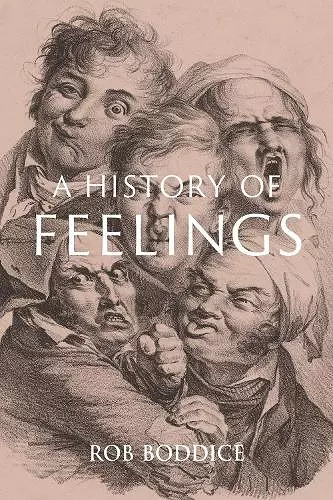A History of Feelings
Format:Hardback
Publisher:Reaktion Books
Published:14th Jan '19
Currently unavailable, our supplier has not provided us a restock date

What does it mean to feel something? What stimulates our desires, aspirations and dreams? Did our ancestors feel in the same way to us? Historians have tried to make sense of our feelings, passions, moods, emotions and sentiments over the last decade in a wave of new research. For the first time, however, Rob Boddice brings together the latest findings to trace the complex history of feelings from antiquity to the present. A History of Feelings is a compelling account of the unsaid – the gestural, affective and experiential. Rob Boddice argues that how we feel is the dynamic product of the existence of our minds and bodies in moments of time and space. Using a progressive approach that integrates biological, anthropological and social and cultural factors, he describes the evolution of emotional encounters and individual experiences across the globe. Written by one of the world’s leading scholars of the history of emotions, this epic exploration of our affective life is essential reading for all those fascinated by our own well-being.
ISBN: 9781789140675
Dimensions: unknown
Weight: unknown
240 pages